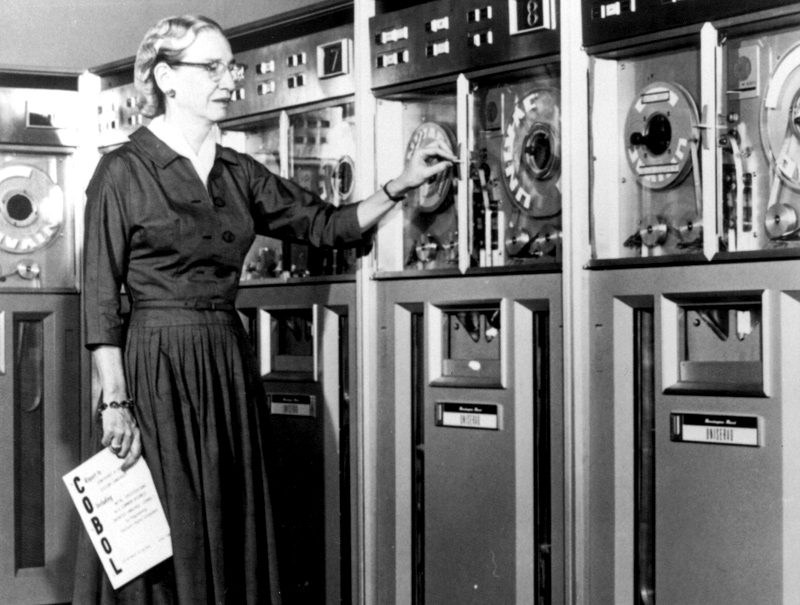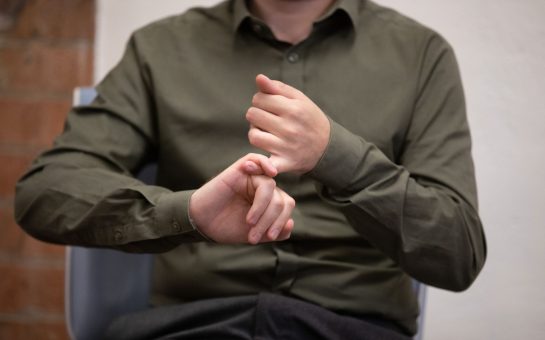Most Brits are clueless about famous female inventors – despite using their invaluable creations including fridges, dishwashers and computers daily.
Up to a whopping nine in ten of 2,000 Brits quizzed have never heard of female innovators while the most famous ones recognised are all male.
The study, conducted by global technology company OKdo, revealed that the inventors Brits are most familiar with are men, while their female counterparts are still largely in the shadows.
The survey revealed 90% of people didn’t know about Grace Hopper, a pioneer of computer programming and one of the inventors of one of the first ever PCs.
Just one in 25 (4%) had heard of Josephine Cochran, who invented the first dishwasher that used water pressure to clean crockery in 1872.
While a tiny one in 50 (2%) knew of Florence Parpart, the inventor of the modern electric refrigerator.
Even the most famous on the list of female inventors, Ada Lovelace, who is thought to have conceived the theory behind the first computer algorithm as early as 1843 wasn’t well recognised.
Despite her relative fame just 16% of those quizzed claim to be familiar with her work, meaning more than four in five (84%) have never heard of her before.
Unsurprisingly the most well-known inventors are all male.
The data has shown Thomas Edison, famous for his invention of the first long-lasting light bulb, is the most well-known overall with more than three in five (60%) claiming to be familiar with his work.
Following closely are Alexander Graham Bell, who patented the first telephone in 1876, known by just under two thirds (59%) of the nation.
While Benjamin Franklin, founding father of the United States and famous for his experiments with electricity, was recognised by more than half (53%) of Brits.
The research demonstrates a need for further education on the history of female inventors and recent government data has shown there’s still much to be done to inspire more female creators in modern day too.
According to analysis by the Intellectual Property Office, the proportion of female inventors worldwide has almost doubled in recent years, growing from 6.8% to 12.7% between 1988 and 2017.
However, this still means nearly nine in ten inventors worldwide are men.
In the years between 1980 and 2000, the same government report shows patent applications that included a female inventor increased from 8% to 13%, however this still means just one in seven researchers applying for a patent are women.
Patent applications with the same number of male and female researchers working on the project has remained stable at around 3%.
This indicates female inventors are still being outnumbered though as the majority of patent applications referencing women were as part of teams that were mostly composed of men.
Within the UK, Northern Ireland has the ‘highest’ percentage of female inventors at 11%. In Scotland and England this falls to 9%, while in Wales it stands at about 8%.
Nicki Young, President of OKdo, said: “Encouraging people to think about solutions that have a positive impact through education is at the heart of our mission.
“We believe representation matters when it comes to pursuing a career or a field of study.
“This is particularly true for young women who want to get involved in STEM and become tomorrow’s top engineers, scientists and bring amazing advancements to society.
“Greater diversity enables a more rounded perspective of future innovations in all industries and that starts with grassroot investment today.
“We all have a responsibility to do more to showcase role model women who have made a difference, both then and now, to inspire the next generation.
“This is why we want to shine a light on the great women who brought huge contributions to our society but are often not getting enough credit for it.”
Mollie Gatens, SEO and Digital Experience Manager at OKdo said: “While historically discoveries and inventions brought into the world by women have not been in the spotlight as much as men’s, we’re slowly but surely seeing a change nowadays.
“We believe it’s important to celebrate and recognise the amazing advancements made by female inventors in the past.
“We hope this will inspire this generation of girls to read up on the great contributions that women like them have made and maybe want to get involved too.
“I believe everyone deserves to reach the position they are capable of through competency and learning, no matter what gender, beliefs or ethnicity.
“I would encourage parents and young people to engage early in STEM subjects, as they’re the backbone to every advancement we make.”
For more information on OKdo, visit https://www.okdo.com/
Featured image credit: Karen via Flickr under CC BY 2.0 license





